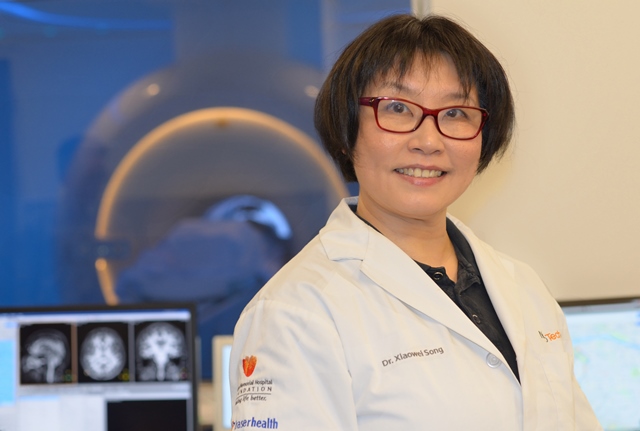By Elaine O’Connor
The future of seniors’ health care is being trialed in British Columbia, where Fraser Health Authority researchers are testing predictive technology to help seniors maintain their health as they age.
The goal is to harness the power of personalized medicine to provide personalized frailty prevention plans to patients.
The health authority won a $1.38 million grant from the Canadian Institute of Health Research (CIHR) last year to test this new seniors’ frailty identification technology – an electronic comprehensive geriatric assessment tool (eFI-CGA for short).
This algorithm is embedded in electronic medical records (EMR) so physicians and care providers can automatically calculate a patient frailty index in the moment and over time as part of routine care. It enables clinicians to intervene to lower a senior’s frailty index if it begins to rise, prescribing tailored health plans to help aging patients maintain bone density, muscle tone, nutrition, etc. to protect them from fractures, falls and nutrient deficiencies. With this knowledge, care providers then connect patients with the external supports and community resources they need to improve their initial signs of frailty. The aim is to prevent or delay the onset of frailty, enabling seniors to live healthier, longer, in their own homes and communities, rather than in acute care or residential facilities.
Currently, health practitioners assess frailty with a few indicators through paper charting. The new electronic frailty index tracks dozens of indicators and quickly recalculates as health conditions change. Benefits for clinicians include time savings, improved diagnostic precision and the ability to do more preventative care and tailored wellness coaching with vulnerable senior patients before frailty sets in, because while it is not reversible, its onset can be delayed.
Clinical scientist Dr. Xiaowei Song received the four-year award as the principal investigator along with Dr. Kenneth Rockwood, a world leader in frailty research from Dalhousie University, Fraser Health’s Regional Medical Director Dr. Grace Park and Annette Garm, Executive Leader of the health authority’s Community Actions and Resources Empowering Seniors project (CARES).
The frailty index, Dr. Song explained, “can act like a canary in a coal mine to tell us in advance that something could go wrong with their health.”
“We have an aging society,” continued the neuroimaging and aging brain health expert from the NeuroTech and ImageTech Labs at Surrey Memorial Hospital. “We will have more people with frailty using hospital beds and acute health care resources. So if we can help them manage frailty, we can care for them with other services.”
The eFI-CGA tool was developed by the team during foundational work in the CARES project, which began as a pilot project with area seniors in 2015, assessing their frailty and working with them for a year on improving their scores through wellness plans and lifestyle coaching from Self-Management BC.
Annette Garm said the eFI-CGA is the first of its kind in the province and it gives physicians a unique advantage when caring for seniors. “Knowing and tracking a patient’s frailty index will support better assessment and management over time,” she said, “to prevent the descent of seniors into frailty.”
[OPTIONAL CUT STARTS HERE]
The research team also included Fraser Health’s Samar Hejazi, Dr. Robert McDermid, Dr. Sonia Singh, Dr. Ryan D’Arcy, and Dr. Ronald Kelly, plus patient partner Joyce Sandercock and Dalhousie University’s Dr. Olga Theou.
Dr. Song and an interdisciplinary team, including Surrey Memorial’s Dr. Ryan D’Arcy, also won a $15,000 award from the Michael Smith Foundation for Health Research to support early frailty assessment at home. The funding will support early development of wearable frailty assessment technology to allow patients themselves better monitor changes in their frailty and work on prevention with their doctors.
Learn more about Fraser Health’s personalized medicine work on seniors’ frailty
Elaine O’Connor is a Senior Consultant, Communications at Fraser Health.




